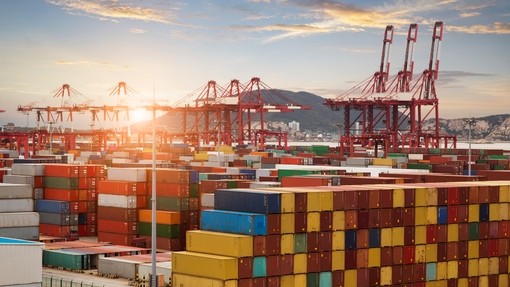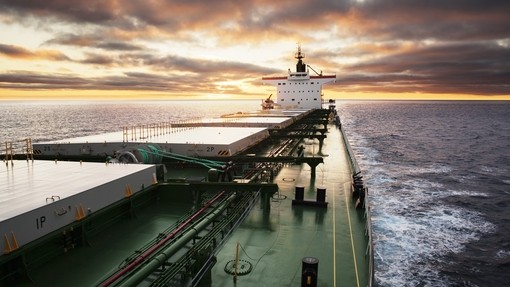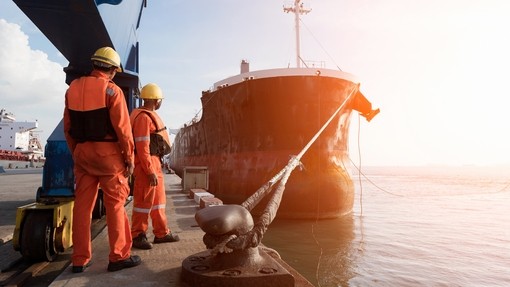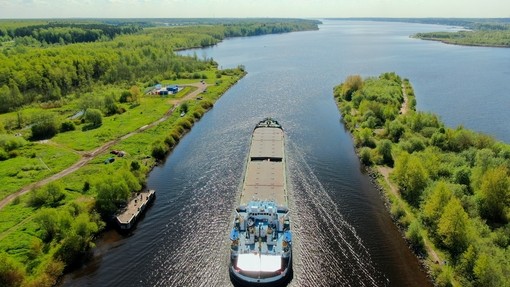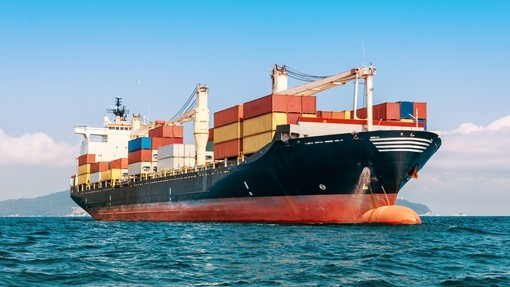MASSive development in autonomous shipping

MASSive development in autonomous shipping
On 16 and 17 January 2024, the UK Maritime Autonomous Systems Regulatory Working Group (MASRWG) held a virtual conference titled ‘MASSive Development,’ attended by Hill Dickinson.
In this article, we highlight some of the discussions that took place and put these in context of ongoing industry, regulatory and legal developments.
Context
Those who have an interest in autonomous shipping will know that MASS stands for maritime autonomous surface ships. The evolution of MASS represents a significant shift in maritime operations, intertwining cutting-edge technology with traditional maritime practices.
Discussions at the MASRWG event shed light on various facets of MASS and sought to address the myriad considerations that frame the current and future landscape of autonomous maritime operations.
Bringing together industry professionals working at the cutting edge of maritime autonomy, the speakers drew attention to the rapid progress being made in the context of the long road ahead. Drawing comparisons to similar disruption in other transport industries and highlighting lessons learned, the speakers considered some important ways in which the maritime industry will have to adapt to the increasing use of artificial intelligence (AI) and advanced technological solutions in shipping. Ultimately, it was thought that incremental implementation will allow experience to lead progress.
Some of the challenges faced include: cyber-risk management; infrastructural challenges; co-existence between AI capabilities and human competences; legal and regulatory issues; adequate standards; and data-driven decision-making.
Cybersecurity
Cybersecurity emerged as a pivotal concern, given the reliance on digital technologies and the potential for cyber threats. The maritime sector is under constant threat of cyber-attack, with the average cost of dealing with the fallout from such attacks reaching substantial figures.
It was recognised that addressing these risks requires a comprehensive cybersecurity framework that encompasses both vessel and infrastructure security.
It is worth noting in this context that there are already a number of industry publications and guidelines addressing cybersecurity. These include:
- the UK Government’s updated Cybersecurity Code of Practice for Ships, published in July 2023;
- the International Maritime Organisation (IMO) Guidelines on Cyber Risk Management dated June 2022;
- the regularly updated Guidelines on Cyber Security Onboard Ships issued jointly by a number of organisations including BIMCO, Intertanko, International Chamber of Shipping, World Shipping Council and Intercargo (version 4 currently); and
- the IACS (The International Association of Classification Societies) Recommendations on Cyber Resilience.
Infrastructure
Infrastructural challenges impact the effective adoption of MASS.
Industry owner/operators expressed interest in advancing MASS technology and underlined the need for infrastructure that supported autonomy, enhanced productivity and made MASS technology both affordable and viable. This required an approach that took into account digital enablers, situational awareness, and reliable communication systems, ensuring that autonomous vessels could operate safely and efficiently.
Politics and policy
The political landscape surrounding MASS is complex, influenced by flag state policies and international maritime regulations.
Speakers highlighted the need for the international community to take a united, balanced approach that fostered innovation while ensuring safety and compliance. Whether individual states take an interventionist or hands-off approach going forward remains to be seen and may be dictated more by national expectations than an international consensus.
In our recent article, ‘AI in Maritime’ we highlighted the UK Government’s willingness to embrace technology to enhance the UK maritime sector. The UK has so far taken a restrained approach to general regulation of AI because the UK Government has declared that it is pro-innovation and wants to support technological advances in business and industry.
However, in the EU, agreement has been reached on the text of an EU AI Act, which is expected to come into force within 2024. The EU AI Act takes a risk-based approach to regulation, with AI systems being classified and regulated according to four levels of risk: (i) unacceptable risk; (ii) high risk; (iii) limited risk; and (iv) no or minimal risk.
More general AI regulation is clearly relevant to the maritime industry and it remains to be seen whether the UK Government (either in its current guise or otherwise) ultimately concludes that it needs to implement some form of regulatory regime.
Standardisation and data-driven decision-making
Standardisation emerged as a critical theme. It is expected that classification societies will establish uniform standards for MASS operations. Data-driven decision-making, facilitated by AI and advanced analytics, is expected to enhance operational efficiency and safety. However, such developments necessitate robust governance and quality assurance to ensure reliability and transparency.
The discussions revealed a multi-faceted view of MASS, where innovation intersects with regulatory, legal, and operational challenges. As the maritime industry navigates this transition, collaboration among stakeholders, including regulators, operators, and technology providers, will be key to harnessing the full potential of MASS while ensuring safety, security, and compliance in the new era of autonomous shipping.
Legal issues
The legal framework for MASS is under scrutiny, particularly with regard to liability and insurance. With the removal of the human element, traditional liability models, based on human error, may no longer apply.
This raises questions about who, for example, would be liable in the event of an incident caused by a failure of the technology. Would it be the vessel owners/operators or would it be those providing the technology? Part of the debate centred around a potential shift towards strict liability. The implications for insurers were significant, and the industry would need to evolve to address the unique risks associated with autonomous operations.
The legal challenges also extend to regulatory compliance (including training standards) and criminal accountability. Amendments to existing international maritime conventions, such as the STCW (International Convention on Standards of Training, Certification and Watchkeeping for Seafarers), COLREGS (Convention on the International Regulations for Preventing Collisions at Sea) and SOLAS (International Convention for the Safety of Life at Sea), along with the development of new best practices and standards, will be essential to ensure that MASS operations align with international maritime laws and regulations.
At the IMO, work is already underway to develop a regulatory framework for MASS that keeps pace with rapidly evolving technological developments. Among other things, the IMO’s Maritime Safety Committee (MSC) has been working on a non-mandatory MASS code for adoption probably by 2025. The expectation is that, based on feedback from its application during the non-mandatory period, it will ultimately become a mandatory code by 2028.
The UK Government conducted a consultation on the ‘Future of transport regulatory review: maritime autonomy and remote operations’ in 2021. As a result of the feedback received, it recommended that existing maritime legislation should be amended to provide for the operation of MASS in UK waters.
While the UK Government has suggested it may proceed with primary UK legislation without waiting for the IMO to implement its own regulatory regime, it is not yet clear when any UK legislation will be introduced or whether it will reflect the IMO regulations or extend beyond them.
In the meantime, in November 2023, Maritime London published a MASS UK Industry Conduct Principles and Code of Practice (version 7).
MASS developments
The global MASS market is currently estimated to consist of over 1,000 vessels, with an estimated market value of US$88 billion. It is predicted that the MASS market could be worth up to US$150 billion by 2030 and it has been reported that the UK aims to secure a 10% market share of this.
In September 2023, the UK, Belgium and Denmark signed a Memorandum of Understanding to improve collaboration in facilitating the increased use of digital technologies and autonomous systems on board ships.
On a regular basis, industry press reports on MASS trials and projects – for example:
- in March 2023, a series of autonomous operations trials were held in the North Sea as part of the Joint Industry Project Autonomous Shipping;
- in June 2023, a Belgian company successfully completed a live trial of autonomous shipping technology;
- in October 2023, MEGURI2040, a project led by the Nippon Foundation, entered its second phase. The project aims to create a fully autonomous ship by 2025.
The EU (primarily through the European Maritime Safety Agency or EMSA) has issued Operational Guidelines on trials of Mass Autonomous Ships, in conjunction with key industry stakeholders.
The IMO’s Maritime Safety Committee has also approved interim guidelines for MASS trials.
Unsurprisingly perhaps, 2023 has been described as a breakthrough year in autonomous shipping.
This article was contributed to by trainees, William Curtis and Callum Tanton-Parham.

